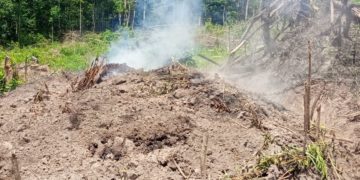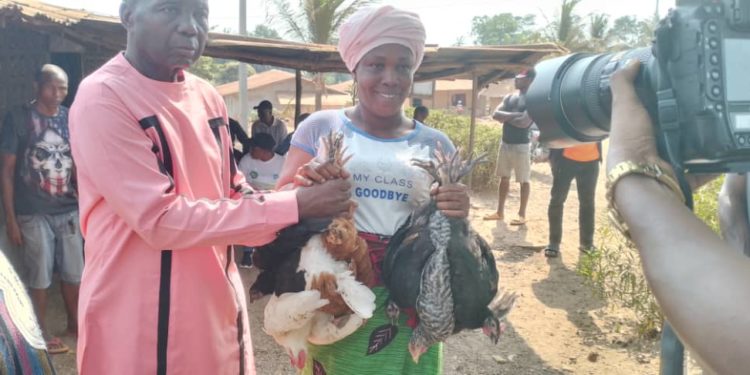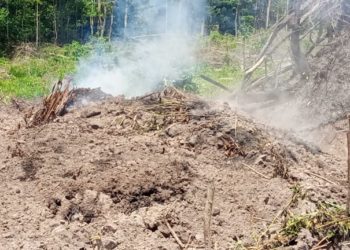By Brima Sannoh
At least 700 local farmers in Malen Chiefdom in Pujehun District on Thursday January 23 received poultry as part of a scheme by the Government of Sierra Leone and the Food and Agricultural Organization (FAO) of the United Nations designed to fight malnutrition.
The scheme, which entails the distribution of the birds and small ruminant animals, is part of the Food System Resilience Programme (FSRP), a World Bank funded initiative that is implemented across seven countries in Africa. In Sierra Leone, it is aimed at boosting the government’s flagship Feed Salone Initiative, which seeks to transform the country into a food self-sufficient nation.
In Sierra Leone, the scheme was first launched in January 17, 2025 by the Ministry of Agriculture and Food Security, in collaboration with FAO. The launching took place in Bandajuma, a major business community situated along the Sierra Leone-Liberia international highway.
The FSRP Sierra Leone chapter has five core components, implemented across 15 agricultural districts in the country and focuses mainly on three value chains – rice, cassava and livestock.
The Agriculture Ministry is the principal implementing agency, providing leadership in establishing and managing the programme unit, and supporting activity implementation and supervision through its national and district level structures.
Dozens of smallholder farmers, mostly women, were beneficiaries at the distribution event held at the residence of Chiefdom Speaker Shengbeh Robert Moigua of Sahn Town. Each of the beneficiaries received a total of six birds and a 50kg bag of poultry feed.
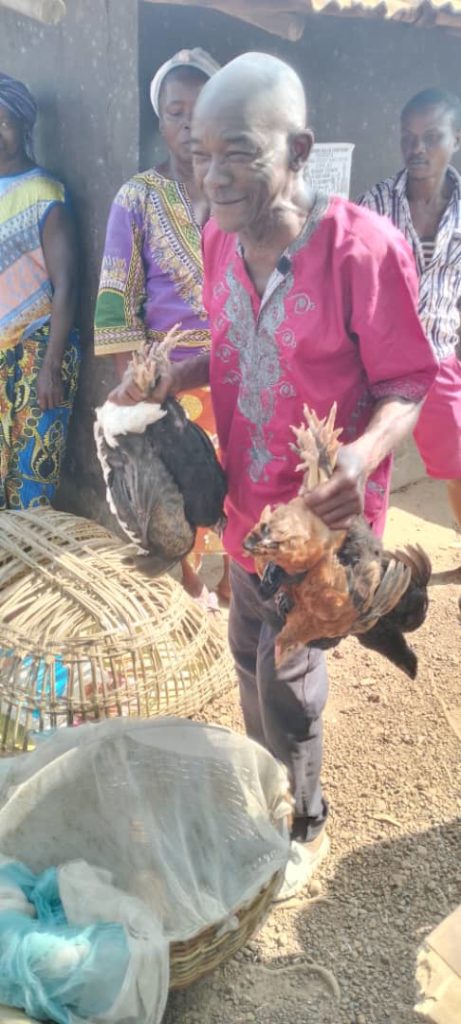
Photo credit Brima Sannoh, ManoReporters.
There are approximately 4, 200 beneficiaries in six of the 14 chiefdoms in Pujehun, where the first phase of the distribution covered, according to Mariama Fofanah, District Livestock Officer in Pujehun.
Among the beneficiaries was Ansumana Sillah, an elderly farmer from Bamba Village in Malen.
He was grateful for been selected for the scheme.
“I got three pairs of birds, but I can assure you that with these six birds, I am going to grow them into a large farm full of birds that will produce lots of eggs every month, which will be supplied to markets around this district and other parts of the country,” he said.
Even though he only received a bag of grain for his birds, Mr. Sillah was confident that with the training that was provided as part of the programme, he can overcome every challenge he meets along the way.
“We only received one bag of the food for the chickens and I know it is not enough to feed them throughout the month or year, but that should not be an excuse for the farmers to fail in achieving the goal for these birds,” Sillah said, adding: “We have to challenge ourselves to turn all the challenges into good testimonies, so that at the end of the day, we will help to achieve food self-sufficiency in our country.”
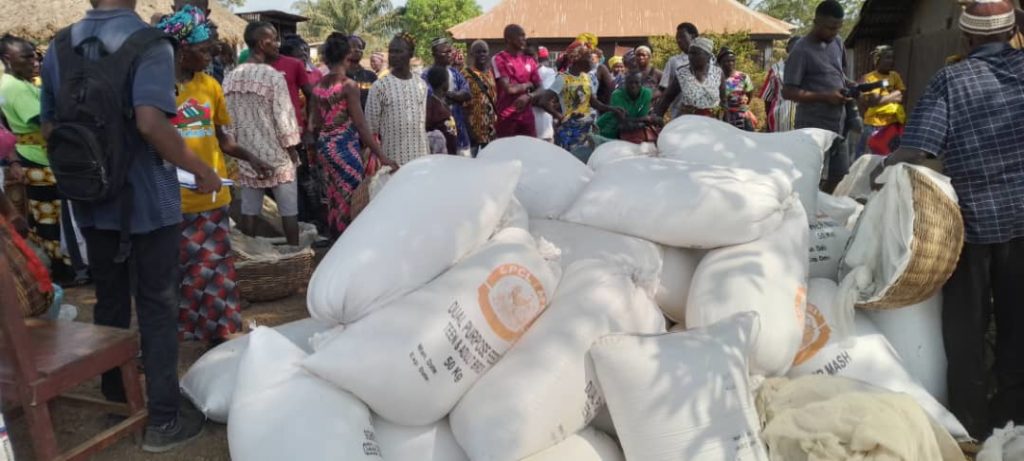
For Mariama Koroma, a mother of three young girls from Gbongboma Malen, the poultry supply is a blessing for many lower income earning farmers like her in her community.
“My children and I will turn this poultry into a real investment that would benefit not only us, but the entire people of Malen. This is my main plan and I will work towards making it becomes a reality,” she told ManoReporters after receiving her share.
“My appeal to the government and its partners will only be for them to supply us with more feeds for this initial stage of the project as we are not financially strong for now,” she added.
Ms Koroma also wants to see continue training for them on poultry farming techniques, noting the three days of training they underwent wasn’t enough to understand everything required to successfully establish a poultry farm.
Poultry farming is not common in Pujehun; and the few farmers who ventured into it between 2022 and 2023 in Gbondapi in the Kpanga Chiefdom couldn’t succeed, largely due to poor management and disease outbreaks, among others. This is responsible for the high cost of poultry products, particularly egg, in the district.
However, Ms Fofanah, the district livestock focal person, emphasized on the enormous benefits the farmers will be getting from this initiative if they take it seriously.
“As you are already aware, poultry serves as a major source of animal protein, from eggs and meat. It even provides food, jobs and other benefits to the people and the environment, and this is what we want to achieve in Pujehun District and Sierra Leone as a whole,” she told ManoReporters on the sidelines of the distribution exercise.
“Once we get that done, we will be done with all the shouts about inflation that have affected most Sierra Leoneans, especially in the area of poultry products,” she added.
Fofanah promised that her team will embark on regular monitoring in the beneficiary communities to ensure that they prevent misuse of the efforts and resources that have been invested into the project.
“One of the things that I am happy about is that we have given all of the farmers the necessary training that will help them start poultry farming and they are very enthusiastic about the project. That tells you that it won’t be difficult to achieve the goal,” she said.

